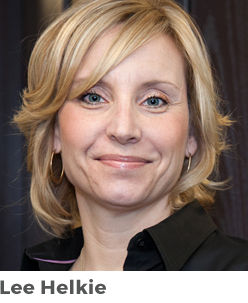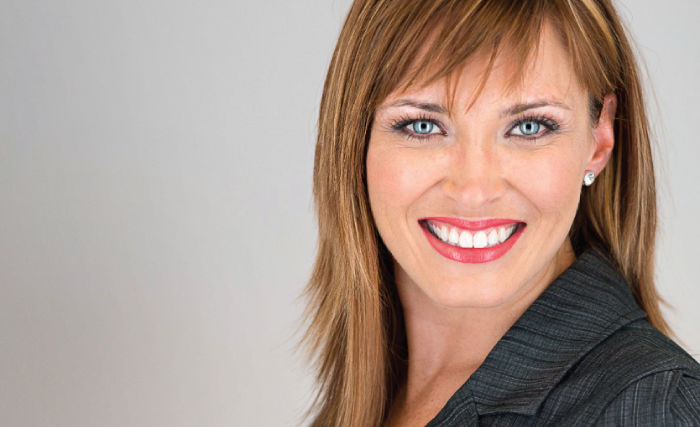Financial advisors will need to navigate the choppy waters of generational change to ensure the long-term success of their businesses. The baby boomers – the generation born after the Second World War whose sheer numbers shaped social and economic developments at every stage of their lives – are retiring. This will have a huge impact on all facets of society, including the financial services industry.
“Baby boomer advisors have already begun to retire, and they will continue to do so over the next two decades,” said Rick Hyde, founder and chief financial officer of Ticoon Technology Inc., a Toronto-based financial services data consolidator. “Many will move into retirement gradually, keeping their top clients while younger advisors take over the rest of their business.”
And baby boomers clients, the preferred client base of many advisors, are starting to dip into their nest-eggs, Hyde noted. “Advisors will have to look to a younger market to secure the sustainability of their businesses – in particular, to the millennial generation, which is just entering its peak income-earning years.”
The millennial generation
Born between the early 1980s and 2000, millennials – also known as Generation Y – don’t have a lot of money to manage right now as they buy homes and raise children. “But they will inherit from the boomers,” Hyde said, “and they’re counting on their inheritances.”
It may not be easy for advisors who intend to build their practices with this group. According to a recent Manulife Investor Sentiment Index, one in four millennials said maintaining their current lifestyles is their chief concern, and only 7% of those surveyed said they are concerned about not having enough money in retirement.
“Millennials want to have everything today such as the $800,000 home, made possible by their boomer parents’ down payments and banks that are willing to lend them money,” said Cary List, Toronto-based president and chief executive of the Financial Planning Standards Council. “It will be a challenge to get them to put money aside for their futures.”
Millennial clients won’t have the same kind of loyalty that their parents have to their advisors, added Ronald Harvey, senior financial advisor and manager of Investment Planning Counsel’s Planning Your Peace of Mind branch in Ottawa. “While boomers will say, ‘You’re the expert. I’ll leave it up to you,’ the millennials will check me out on the Internet before they come in to see me – and good advisors should encourage them to do this kind of research – and they’ll arrive with tons of questions: ‘Do I have to pay for this?’ “Why should I be in equities? My mother says I should be in bonds.’ Advisors will connect with them by encouraging them to achieve their goals and dreams, which will probably be medium-term goals such as paying off their mortgages and putting their kids through school.”
Justine Zavitz, herself a millennial, said that working with millennial clients will require patience. “Millennials don’t make quick decisions,” said the 33-year-old financial advisor at Zavitz Insurance Inc. in London, Ont. “They’ll want to research your suggestions online, and by talking to their families and friends. Advisors who are used to closing big cases quickly may find this frustrating. But millennials can be very loyal if you take the time to help them understand what is right for them, and why you’re right for them. You may have to explain some financial basics…If you don’t do this, they’ll think you just want a quick sale.
“Millennials know when they don’t know something and they will look for help,” she added. “Make sure it’s you they turn to.”
Millennials have grown up with digital technology, and that is their preferred way of working. To serve them, advisors will need to rely less on traditional offices and leverage digital technology to build virtual offices. “Millennials will meet with an advisor once,” Harvey said, “and then they’ll ask, ‘Why do I have to drive across town and pay for parking? Can’t we do this electronically?’”
Zavitz, who mainly works with her company’s millennial and Generation X clients, said she rarely sees younger clients in her office. She communicates with them via email, text messaging and Skype. “And I spend a lot of time in the cafeteria at Western University with clients who are medical and dental students,” she added.
 Millennials’ ease with technology has made them the target market of robo-advisors – digital financial advice providers. “Robo-advisors will be a starting point for many millennials,” said Lee Helkie, a partner at Helkie Financial and Insurance Services Inc. in Toronto, “but as their lives become more complicated with homes, cottages, children and businesses, they’ll have more needs than the robo-advisors can serve.”
Millennials’ ease with technology has made them the target market of robo-advisors – digital financial advice providers. “Robo-advisors will be a starting point for many millennials,” said Lee Helkie, a partner at Helkie Financial and Insurance Services Inc. in Toronto, “but as their lives become more complicated with homes, cottages, children and businesses, they’ll have more needs than the robo-advisors can serve.”
“Robo-advisors are here to stay,” added Stephanie Holmes-Winton, Halifax-based president and chief executive of The Money Finder Financial & Investment Solutions Inc., “and they can make advisors’ lives easier by providing basic financial services such as buying car insurance, and helping small investors purchase stocks and mutual funds.”
Robo-advisors won’t take away advisors’ best clients unless all they do is sell product, Harvey said. “Robo-advisors won’t give any guidance on how clients can fulfil their dreams. They aren’t in a position to help the client who has lost his job determine what to do with his severance package. Investors could always go to a financial institution and say, ‘I want to put $1,000 into fund X.”
Hyde suggested advisors present their clients with à la carte menus of their services, some of them full-service and others self-service. “Clients may be comfortable doing some things on their own, preferably online, such as buying car insurance. They can go to their advisors’ websites and click on the link to a partner who specializes in this area. But when it comes to investment allocation, they’ll need full-service attention.”
Advisors of the future
The average age of today’s financial advisor is 57, and Hyde said that the professionals who are taking over retiring advisors’ practices are now aged 35 to 45. But with boomer advisors leaving the industry and fewer “career shops” – investment firms that provide training and help new advisors get started in the industry – there may be a shortage of advisors in coming years.
Many of the new recruits won’t survive, Harvey said, “because they won’t want to do the work of developing financial plans tailored to the clients’ individual needs.”
“Orphan clients” will be one of the fallouts as the industry retracts, Zavitz said. “This will be especially problematic for retired clients who want to ensure that their money will last as long as they do. Advisors need to start succession planning early, but there is no guarantee that the advisors who buy their books will hold onto all the clients they acquire.”
The successful advisor of the future will be proficient in working with aging boomer clients, whose children may also turn to them for financial help. “With the boomers no longer being in their wealth-accumulation years, there will be a shift to helping them transition into de-accumulation and wealth transfer,” List said. “Financial planners will need to understand the financial impact of health-care issues, including cognitive decline – what it will mean when a client’s retirement expenses suddenly include $4,000 a month to care for a spouse – and the ethical issues around cognitive decline.”
“Younger advisors should partner with seasoned advisors for a time when working with elderly clients,” Harvey suggests.
Advisors will increasingly need to rely on networks of professionals in order to serve their clients. “Millennial clients ask tough questions out of left field,” Harvey said. “An advisor may have to go to an accountant, a lawyer or another professional to answer them.”
Holmes-Winton is seeing more advisors building teams within their practices, “with one person doing mortgages, another doing retirement planning, and yet another doing estate planning. And some are moving outside the financial services industry. We know an advisor who is working with an executive coach, and another who works with a practitioner of holistic medicine to offer clients complete ‘health’ packages.”
She also sees an increased reliance on assistants. “Advisors need to hire around them in order that the things they’re not good at get done. Single advisor practices – which still exist in droves – will not be able to compete without adequate administrative support. We try to get advisors to realize that trying to do everything themselves is counter-productive.”
Advisors can count on changes in the financial services industry in coming years, Helkie said. “Whatever I’m doing now will be different two years from now,” she said. “It’s a reality, and we need to embrace these changes for the positives they’ll bring. There’ll be conveniences down the road that don’t exist now.”
Ten years from now, the business of giving financial advice will be a very different one, List added. “I’m confident that financial planning will be a profession in law across Canada by then, with the certified financial planning designation the standard that will ensure that Canadians’ needs are met by people who are qualified and competent to provide them with financial advice. Making a living from product sales will be less the model than providing advice. We’re already seeing the shift with the phasing-in of CRM2 [the second phase of the Client Relationship Model that will provide investors with greater transparency in the fees they pay for financial advice].”








